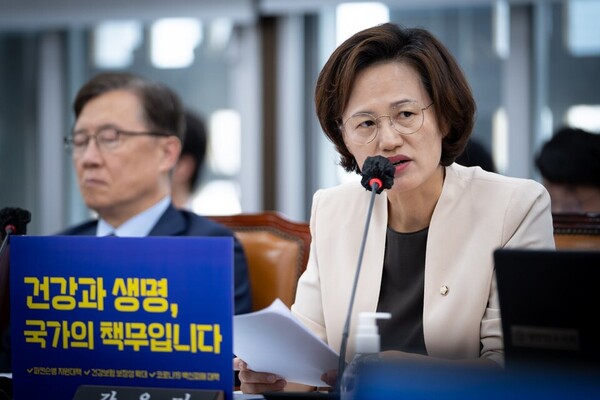The allocation of increased medical school enrollment quota announced by the government is nothing more than an adjustment of quotas to solve the long-cherished wishes of private university hospitals, an opposition lawmaker said Wednesday.
Some medical schools are located in provinces but educate their students at cooperative hospitals in Seoul and its vicinity, the lawmaker pointed out.

“The government has increased admission quota for these provincial medical schools, too,” Rep. Kang Eun-mi of the Justice Party said. “In the end, it has increased quotas for medical schools in the Seoul metro region.”
Students in the pre-med and the first and second years of main courses should take theoretical classes in the region where the medical school was established. However, starting in the third year of the main course, which requires clinical practice, students can move to partner hospitals in the greater Seoul area and take classes there.
Universities with medical schools authorized in provinces but have partner hospitals in the Seoul metro region include the University of Ulsan, Konkuk University, Eulji University, Dongguk University, and Catholic Kwandong University.
"The government has also allocated increased quota to schools located in provinces but conduct training at hospitals in the Seoul metro region,” Kang said in a commentary. “By doing so, the government has failed to change the current system but enlarged its size only. It has forgotten the original purpose of increasing the number of medical school students and is only focusing on increasing the number of students to solve the long-cherished wishes of private universities."
Rep. Kang pointed out that a piecemeal quota increase cannot solve the problem of insufficient regional, essential, and public care, emphasizing that the quota increase must go together with other key issues, such as more students at national universities, mandatory regional physicians, establishing public medical schools and provincial public hospitals.
She also called for the government and the medical community to continue a sincere dialog rather than fight with each other.
"The government and the medical community are not discussing how to solve medical problems but are fighting by taking patients as hostages," Kang said. "I hope that trainee doctors and medical school professors will stop their collective behavior, return to patients, and negotiate with the government. The government should also continue sincere dialog."
Kang also called for convening the National Assembly's Health and Welfare Committee.
"The government and doctors are in deep conflict, and the people are suffering, but the National Assembly is derelict in its duties," Kang said. "The Assembly should act as a mediator to adjust the medical community to accommodate the doctors and allow them to return to the medical field. We shouldn't be playing politics with people's lives. We should be working, not playing politics."
Related articles
- [Contribution] Introduce attending physician system, expand public healthcare before increasing medical school enrollment quota
- Korea to block resigned trainee doctors from getting US medical license
- Senior doctors nationwide rush to resign en masse
- Trainee doctors remain distrustful of government’s conciliatory gesture

